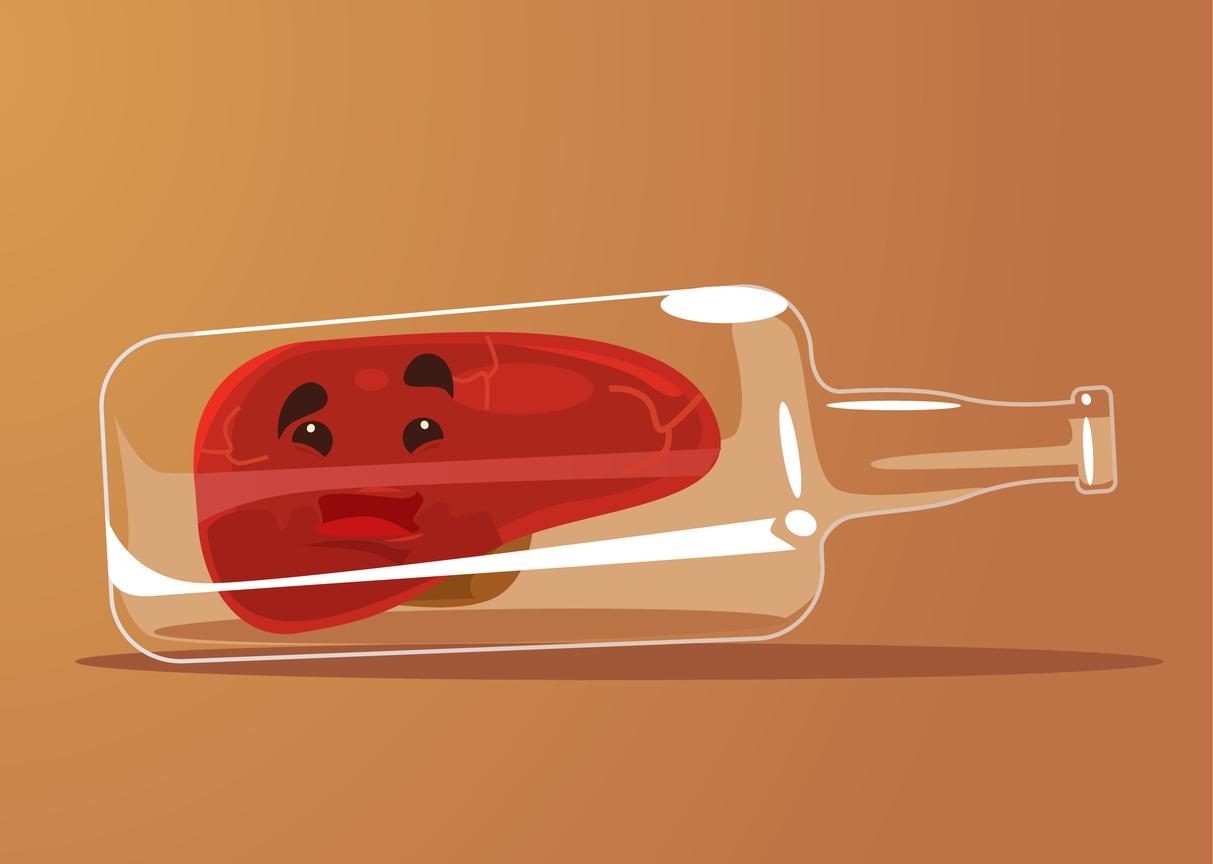A study conducted in the United States shows that regular alcohol consumption and withdrawal can make people more sensitive to pain, causing or exacerbating chronic pain.

- Chronic alcohol consumption can make you more sensitive to pain.
- Alcohol is associated with changes in pain processing in the brain as well as changes in immune system activation.
- Research needs to continue to diagnose or potentially treat chronic alcohol-related pain.
Chronic alcohol consumption can lead to increased sensitivity to pain, according to research into the complex links between alcohol and pain conducted by scientists at the Scripps Research Institute in San Diego, California, USA. Two different molecular mechanisms are thought to produce these effects, one caused by alcohol consumption and the other by alcohol withdrawal.
The results of their research, published in the British Journal of Pharmacologyalso propose novel drug targets to treat chronic pain and hypersensitivity associated with alcohol.
A link between chronic pain and alcohol addiction
“There is an urgent need to better understand the two-way street between chronic pain and alcohol dependencesaid lead author Marisa Roberto, professor of neuroscience at the Scripps Research Institute, in a communicated. Pain is both a common symptom in patients with alcohol dependence, as well as a reason why people are driven to drink again.”
Alcohol use disorders, such as alcohol abuse and alcohol addiction, can cause many chronic diseases, including heart disease, stroke, liver disease, and certain cancers.
Excessive alcohol consumption leads to ongoing pain
One of the many effects of long-term alcohol use is pain: More than half of people with alcohol use disorder experience ongoing pain of some type, according to the Scripps Research Institute. This includes alcoholic neuropathy, a nerve damage that leads to chronic pain and other symptoms.
Other studies have also shown that alcohol causes changes in how the brain processes pain signals, as well as changes in how the immune system is activated. Pain, in turn, can create an increase in alcohol consumption. Additionally, during withdrawal, people may experience allodynia, a condition in which a harmless stimulus is perceived as painful.
Alcohol can cause allodynia
Marisa Roberto’s team wanted to understand the causes of these different types of alcohol-related pain. In their study, they compared three groups of adult mice: animals dependent on alcohol (excessive drinkers), animals with limited access to alcohol and not considered dependent (moderate drinkers), and those who had never drunk alcohol.
In the dependent mice, allodynia appeared during alcohol withdrawal, and subsequent alcohol consumption significantly reduced pain sensitivity. Furthermore, about half of the mice that were not dependent also showed signs of increased pain sensitivity during alcohol withdrawal, but unlike the dependent mice, this neuropathy was not reversed by reintroduction of alcohol.

The link between alcohol and chronic pain needs further research
The scientists then measured levels of inflammatory proteins in the mice, and found that while inflammatory pathways were elevated in both addicted and non-addicted animals, some specific molecules were increased only in addicted mice. This suggests that different molecular mechanisms may contribute to the two types of pain. It also provides insight into inflammatory proteins that could be used as drug targets to combat alcohol-related pain.
Professor Roberto’s team is now continuing to study how these molecules could be used to diagnose or even treat chronic alcohol-related pain.
















